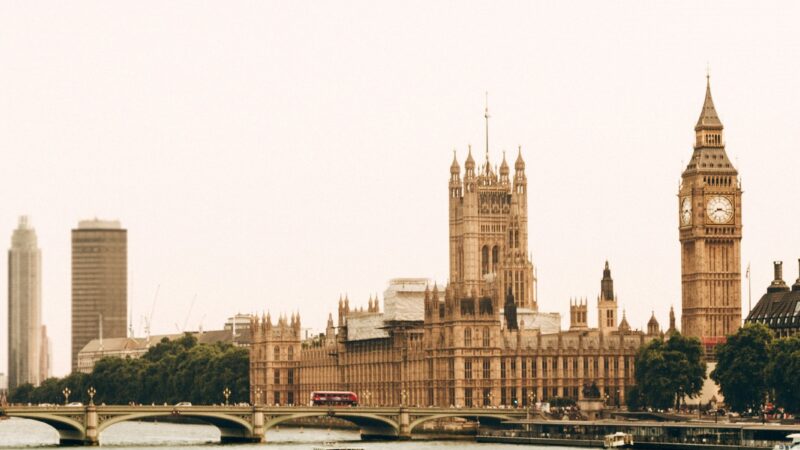A couple of weeks ago Keir Starmer made headlines by claiming that too many people from overseas are recruited by the NHS. For this he was, of course, slandered as the second coming of Sir Oswald Mosely or Enoch Powell by his own side, who, despite their protestations to the contrary, rarely look beyond the headline when it comes to statements about immigration.
Sir Keir made the point that immigration was not the key to ending the staffing crisis faced by the NHS, a point in which he is perfectly correct. Rather than relying on foreign workers to fill the shortfalls in staffing, he would instead “train people in this country” to return to the goal that every country that seeks: remaining somewhat close to self-sustaining one of its most important government services.
An estimated 34% of people joining the NHS last year were from overseas, up from 18% just 8 years ago, a massively disproportionate amount compared to the wider population. There remains in England a shortage of 12,000 hospital doctors and more than 50,000 nurses and midwives. This compounded with the issues of the COVID backlogs has meant that the health service now faces some of the longest waiting periods in its history. Going into a winter with the ongoing fuel and power it is clear that, amongst the litany of other permacrises the service seems to face, the NHS may be entering one of the most testing seasons of its 75 years.
Why not then, if the situation is indeed so dire, accept as many immigrants as it takes to see us through? This makes sense to the types to whom immigration is a hammer and every problem a nail, but continuing this reliance on outsiders to prop up our geriatric and unreformable healthcare system can only end in disaster. They would have us prioritise short term relief over long term investment, a propping up of an overreaching shanty than to build with foresight the proper foundations of a functioning institution
But it makes sense to build from within. For one, it makes no sense to have our healthcare system, one of the most important things in the lives of millions of our countrymen, reliant on those who could at any time up and leave to go home. This has already happened with many Poles who after the covid pandemic dissipated have decided to go back to the continent, affecting services like bus provision in Birmingham particularly hard; so why are we so blind to it’s possible happening in a far more crucial industry? There is also a conversation to be had about our own homegrown medical personnel leaving for America after their training; but one problem at a time here.
This all feeds into the wider discourse around immigration, which has once again hit a record high. 1 in 6 people in England and Wales were born abroad, yet the ONS has decided – for no reason at all, I’m sure – to no longer record ethnicity statistics, and coincidentally demands for housing and services are strained to breaking point. The arguments are tired, but now with this it seems some are finally awake to our current reality that mass immigration is unfair and unjust to all parties save two: left-wing parties who prey on the votes of migrants; and big businesses who can save on labour costs by endlessly importing low cost workers from the third world.
All others suffer for the system; native peoples find their wages undercut and the value of their vote diluted, their languages and culture displaced from inner cities now turned to foreign ghettos. These areas are inhabited by the destitute peoples drawn to a strange place where they have no roots or history, taken from countries far poorer than ours who desperately need the wealth and skills of the people poached from them by the lazy politicians and managers of our institutions who would rather paper over cracks than build from within a stable and secure foundation.
This is a problem far wider reaching than just the NHS, but given that that particular institution is tantamount to our golden calf it’s a good place to start the discourse. For many in Labour however this discourse is unthinkable, as is any that seeks to come up with any solution to our immigration questions with any other answer than “no human is illegal, just let them all in”. This is Starmer’s problem; there remains in Labour the strain of far-left terminally online social vandals that took charge during the Corbyn administration. Though he is leading a cautious return to the centre, he will be answerable in part to these cerebral vacuums, as will his (often just as miserably online) MPs who have already shown themselves to have a habit of breaking rank, as seen in their attending picket lines over the last few months, in order to appease their Twitter followings.
Starmer, whose wife works in the NHS, might be the political equivalent of a plain ham sandwich but on this he knows what is needed, even if it puts him out of lockstep with his party, to whom even suggesting a policy on immigration that isn’t throwing open the door to the world is equivalent to having a televised fireside chat in which he reads extracts from Mein Kampf whilst sat atop a chair made from slave-picked cotton. It remains to be seen whether he sticks to his guns, or will be cowed back into toeing the line by his party, though on this it can be assured; Keir Starmer is right about the NHS.



